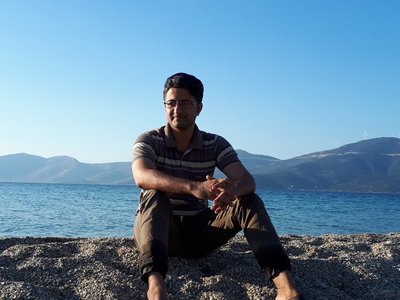

Muhammad Majeed has received a scholarship financed by the Higher Education Commission (HEC) of Pakistan and carried out by OeAD to pursue the doctoral programme at the Vedmeduni Vienna between 2014 and 2018. In the following report he shares his journey after graduation:
My research in Vienna during my PhD was on the gene-editing of fungus-like microorganism using CRISPR/Cas system to study its pathogenic factor(s). After completing my PhD I joined the Virtual University of Pakistan (VUP) as a Lecturer of Biology for one semester. It was at VUP that I developed the idea to experiment on a fungus to continue to pursue my interest in doing gene-editing work. That idea, initially a small experiment, became a full-fledged research project with further addition and improvements during the next few months. During the very first month after I joined the University of Veterinary and Animal Sciences (UVAS), Lahore as an Assistant Professor of Genetics, I submitted this project to the HEC's call for Competitive Research Grant (CRG) under the National Research Program for Universities (NRPU).
NRPU is a flagship research program of HEC for funding research grants on competitive merit for high-level and promising scientific research projects that demonstrate strategic relevance and impact to local industry and society. The focus of this program is to competitively select research projects that will address national priorities through supporting basic and applied research as well as translational research / experimental and transformative research to do country-specific, problem-based research having an impact on society.
I was told by many that the NRPU grants are for ‘big people’ who have established themselves as researchers (or scientists) and those who already have completed multiple research projects. I was advised by one to prepare a small project if I want to increase my chances of winning the grant and that too not under NRPU but somewhere else (by small they meant 1-2 million). Having heard such things, I was reluctant to apply for it in the beginning, but then I thought, “If I do not try it I definitely won’t get it”. So, I decided to ‘try’.
My project, after critical and scientific review by the experts and technical evaluation by the HEC, went successful. I am not indulging in self-praise, but I believe that my ‘trying’ and ‘learning’ paid off (of course it would not have been possible without God’s will). I would not have been writing this piece had I not ‘learned’ additionally. A total of PKR 13.502 million (EUR 70 thousand approximately) from the HEC will be funded for three years for this project where studies mainly on toxin production from Aspergillus fungus will be done using gene editing, in vivo and in vitro, and other molecular approaches. This fungus is an infectious agent which causes respiratory diseases/symptoms in animals, birds, fish, and humans.
With this project, I aim to develop the gene-editing facility for not only this fungus but for the wider scientific research community and further understanding of previously unknown or little-known biological mechanisms. In future, I will try to submit yet another research project to work on animals and plants to increase food production and decrease production losses by increasing resistance against diseases. For this, I must learn and, of course, I am ready.
I encourage all my fellows, who are in the process of writing and submitting their grant applications, to ‘try’ and ‘learn’. Although project writing and management, its conduction, and budgetary matters to apply for grants and other related aspects are generally not taught to PhD students at the universities but the rigorous training during the writing of research papers, reports and thesis gives the basic understanding and confidence in taking the next steps.
We are proud of our former scholarship holders, who are successfully advancing their career, and would like to make their scientific and professional activities visible. Thus, we invite you to send an article (maximum 600 words), short narrative CV and a photo (including credits) to alumni@oead.at.
